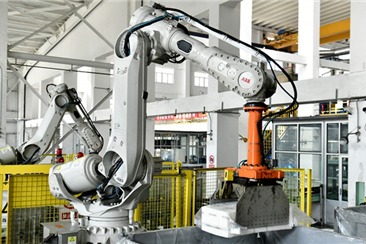Taxation shift eyes unified national mkt
Unlike past, VAT to be collected where goods, services are consumed

China would benefit from fine-tuning its fiscal system, moving the focus of taxation from factories to consumers, a move analysts say would help dismantle local protectionism and accelerate the development of a unified national market.
Currently, value-added taxes — the largest source of tax revenue — are collected where goods and services are produced, said Yang Zhiyong, president of the Chinese Academy of Fiscal Sciences.
Last year, China's VAT revenue came in at 6.67 trillion yuan ($935.6 billion), accounting for over 38 percent of the country's total tax collection, said the Ministry of Finance.
To protect and nurture local factories, the lifeblood of their tax base, localities have sometimes favored homegrown champions, creating hidden hurdles for out-of-province competitors and fragmenting the national market into a collection of smaller, less efficient fiefdoms, Yang said.
To facilitate the construction of a unified national market that is highly efficient, rules-based, fair and open, analysts suggested shifting the point of collection of VAT from where products and services are made now to where they are bought and consumed.
"Shifting VAT collection to a consumption base would alter the calculus of local governments," said Qiao Baoyun, professor of the China Academy of Public Finance and Policy at Central University of Finance and Economics.
This change would encourage localities to invest in what makes an area attractive for spending — such as a vibrant retail environment, sound consumer protection, quality public services and crucially, higher household incomes, Qiao said, adding that under this scenario, increasing revenue would depend on cultivating a thriving consumer base rather than walling off markets.
Analysts say such a shift would also help China transition toward a consumption-led growth model.
The fiscal funds that were previously invested in attracting manufacturers could now be directed toward enhancing people's spending power and willingness to open their wallets, said Luo Zhiheng, chief economist and president of the Research Institute at Yuekai Securities.
To get households to spend more freely, they must feel more secure. That requires stronger government efforts to improve healthcare, pensions and public services, thereby reducing the precautionary savings that have suppressed China's consumption potential, Luo said.
"The basic old-age insurance for rural and nonworking urban residents, for instance, remains modest," Luo said. While the government pledged a 20-yuan increase this March, the average monthly payment for this group still sits at just over 200 yuan.
"This could be further elevated to align with subsistence allowance standards, which are about 600 yuan in rural areas and 800 yuan in urban areas," he added.
In August, China unveiled childcare subsidies, set at a standard 3,600 yuan per year for each child under the age of three, which is expected to provide financial relief for families, potentially boosting household consumption.
wangkeju@chinadaily.com.cn




































